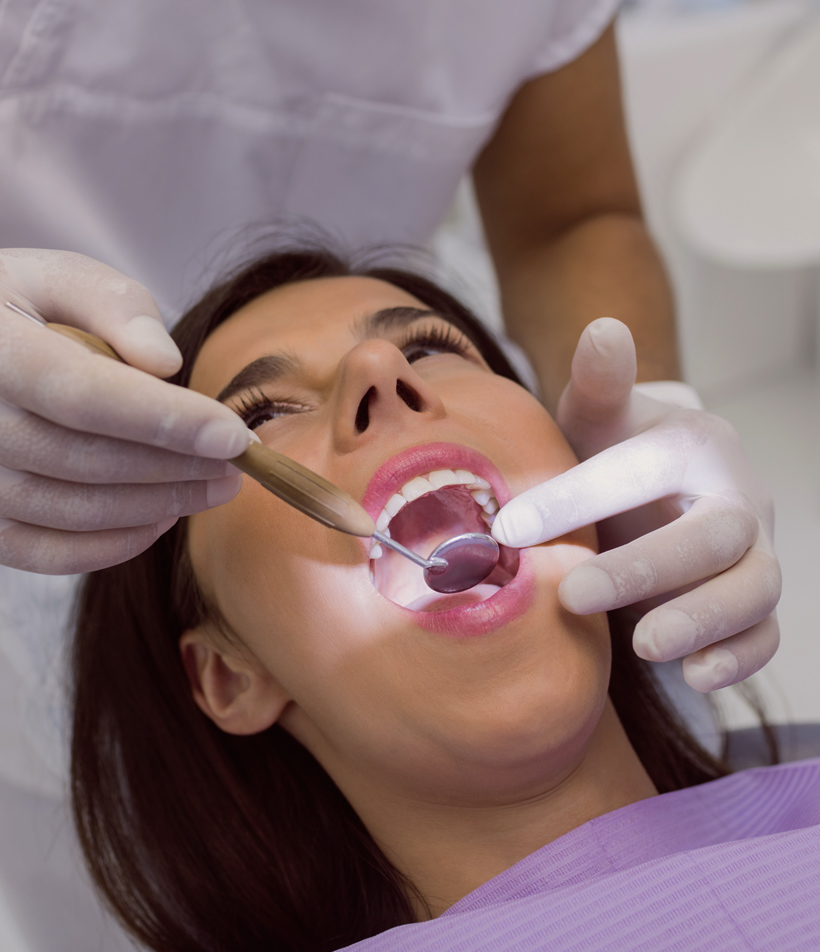
Promoting Healthy Smiles Through Oral Care
Dental hygienists are dental providers who professionally clean teeth and counsel patients about oral hygiene. We can help patients maintain a healthy smile and treat various health issues. During a routine visit, a patient may see a dentist, a dental assistant, and a dental hygienist.
Dental hygienist treatment services are available at Burtonsville Dental Suite in Burtonsville and the surrounding area. Our team of dedicated providers works together to give patients a better bill of dental health. With a comprehensive approach to dental health, patients benefit from our thorough treatment plans, which start with routine cleanings and examinations by the dental hygienist.
Ideal dental health means there should be a partnership between the patient and the care team. Our team of dental staff is committed to patient education and proper oral care. Call us at (301) 421-1300 to schedule your next cleaning with a dental hygienist.
Dental Hygienist Training and Certification Process Details
In order to become a dental hygienist, a candidate must first complete a college program in dental hygiene. Students in the program may earn an associate degree at a community college, a bachelor's degree at a four-year university, or a graduate degree. Admissions to programs in dental hygiene usually require a background of high school courses in science.
After completing the academic college-level courses, dental hygienist candidates must then complete a supervised clinical experience with patients. Once the program is finished, dental hygienists must earn their state license in the practice. According to the American Dental Association, some states also require candidates to earn a passing score on the National Board Dental Hygiene Exam.
“After completing the academic college-level courses, dental hygienist candidates must then complete a supervised clinical experience with patients.”
How Dental Hygienists Help With Patient Screening
During routine exams and cleanings, dental hygienists may also assist the dentist with patient screenings for some conditions. They may assess the patient's oral health and use the periodontal chart to evaluate the patient's potential for gum disease. They may also inquire about any other health issues or chronic conditions for the patient.
Some dental hygienists may also perform cancer screenings during the examination, such as oral cancer. These dental professionals also examine the head, jaw, and neck to spot potential problems. Dental hygienists also may take X-rays of the teeth and mouth to determine if there are cavities or other oral issues.
“Some dental hygienists may also perform cancer screenings during the examination, such as oral cancer.”
Recommendations and Documentation
Another aspect of a dental hygienist's job is to counsel patients and provide advice for optimal oral health. They may educate patients about the importance of proper brushing and flossing and provide suggestions for oral hygiene techniques. Dental hygienists also may offer recommendations for different types of toothbrushes and flossing products.
Proper oral care at the dentist also requires documentation of treatment and the condition of the patient's mouth and teeth. The dental hygienist works with Burtonsville Dental Suite to document the condition of the gums, teeth, and screening results. Effective record-keeping helps providers monitor possible problem areas.
“Effective record-keeping helps providers monitor possible problem areas.”
When a Dental Hygienist Treats Patients
Dental hygienists are usually involved in a patient's regular, routine cleaning appointment. It is vital to schedule periodic appointments according to the dentist's recommendations. During a standard appointment, the patient may start treatment with the dental hygienist. Here are the parts of the visit where a dental hygienist may be involved:
- Health History: Before starting any examination or cleaning, the dental hygienist may first review the patient’s health and history. The dental provider reviews the patient’s dental records and health information. Then, the provider may discuss the patient’s concerns before going to the next step of the appointment.
- Teeth Cleaning: Next, the dental hygienist cleans the teeth. They may use a professional polisher to remove build-up and stains on the enamel. They also use tools to remove tartar and plaque from the teeth and the gum line.
- Fluoride Treatment: Some dental hygienists may provide preventative services during a routine visit. Fluoride treatment helps keep the teeth healthy and strong. Dental sealant application to prevent tooth decay may also be part of a routine appointment.

